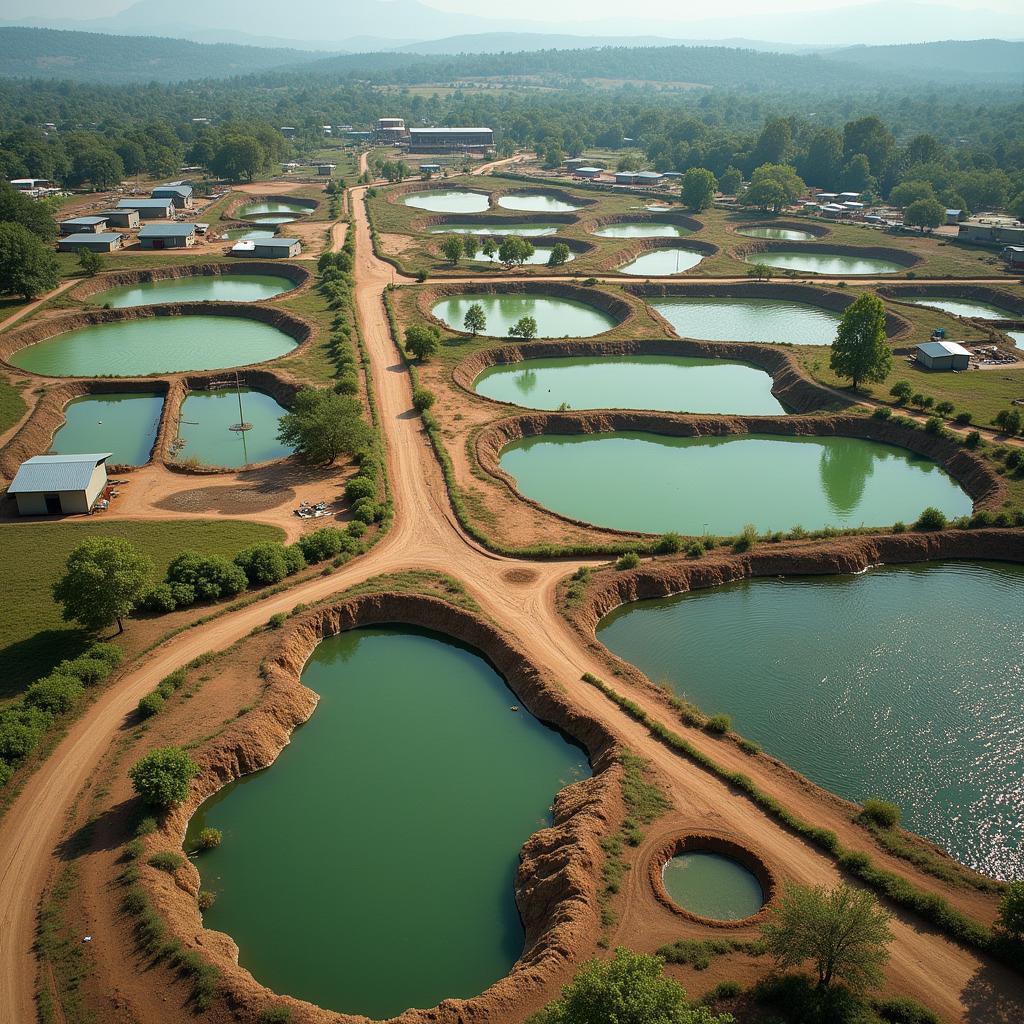African Country with Four Coups: Burkina Faso’s Tumultuous Journey
Burkina Faso, an African Country With Four Coups since 2014, has faced significant political instability. This West African nation, once known as Upper Volta, has grappled with a cycle of military takeovers, impacting its development and security. This article delves into the complexities of these coups, exploring their root causes, consequences, and the ongoing search for stability.
Understanding the Four Coups in Burkina Faso
Burkina Faso’s recent history is marked by four distinct military coups. The first, in 2014, ousted long-time President Blaise Compaoré after widespread protests against his attempt to extend his rule. This ushered in a period of transition, culminating in elections in 2015. However, this fragile democracy was shattered in 2015 by a short-lived coup attempt by members of the elite presidential guard. While this coup failed, it highlighted underlying tensions.
The third coup, in January 2022, removed President Roch Marc Kaboré amid growing frustration over the government’s handling of the escalating jihadist insurgency. Lieutenant Colonel Paul-Henri Sandaogo Damiba seized power, promising to restore security. Yet, mere months later, in September 2022, Damiba himself was overthrown by Captain Ibrahim Traoré, marking the fourth coup. Traoré cited Damiba’s inability to quell the insurgency as the justification for the takeover.
The Root Causes of Instability: More Than Just Military Intervention
While military intervention is the most visible manifestation of Burkina Faso’s instability, the root causes are far more complex. The country has long struggled with poverty, inequality, and weak governance. These factors have created a fertile ground for discontent and instability, making it vulnerable to both internal and external threats. The rise of jihadist groups in the Sahel region has further exacerbated the situation, adding another layer of complexity to the political landscape.
- Poverty and Inequality: A significant portion of the population lives in poverty, with limited access to basic services. This economic disparity fuels resentment and frustration, creating an environment conducive to unrest.
- Weak Governance: Corruption and a lack of accountability within the government have eroded public trust, leading to a sense of disillusionment with the political system.
- Jihadist Insurgency: The growing presence of jihadist groups, linked to al-Qaeda and ISIS, has destabilized the country, contributing to the violence and insecurity that have plagued Burkina Faso in recent years.
The Consequences of Political Upheaval
The repeated coups have had a devastating impact on Burkina Faso. The political instability has hampered economic development, deterred foreign investment, and exacerbated the humanitarian crisis. The constant changes in leadership have made it difficult to implement long-term solutions to the country’s challenges. Furthermore, the coups have undermined democratic institutions and eroded public trust in the political process.
What is the current situation in Burkina Faso? The country remains in a state of flux, with the Traoré-led junta still consolidating its power. The security situation remains precarious, with the jihadist insurgency continuing to pose a significant threat. The international community has expressed concern over the repeated coups and called for a return to constitutional rule.
Burkina Faso: Looking Ahead
The future of Burkina Faso remains uncertain. The country faces a long and difficult road to stability. Addressing the root causes of instability, including poverty, inequality, and weak governance, is crucial for achieving lasting peace and security. The international community can play a vital role in supporting Burkina Faso’s efforts to rebuild its democratic institutions and address the humanitarian crisis. The african country with four coups needs a sustained commitment to good governance, economic development, and security sector reform to break the cycle of violence and instability.
In conclusion, Burkina Faso, an african country with four coups, exemplifies the complexities of political transitions in the Sahel region. Addressing the underlying issues of poverty, inequality, and the jihadist insurgency is crucial for building a more stable and prosperous future. The international community must continue to support Burkina Faso in its journey towards peace and democracy.
FAQ
- Which African country has experienced four coups since 2014? Burkina Faso.
- What are the main causes of instability in Burkina Faso? Poverty, inequality, weak governance, and the jihadist insurgency.
- What are the consequences of the coups in Burkina Faso? Hampered economic development, increased insecurity, and a humanitarian crisis.
- Who is the current leader of Burkina Faso? Captain Ibrahim Traoré.
- What are the challenges facing Burkina Faso? Restoring security, rebuilding democratic institutions, and addressing the humanitarian crisis.
- How can the international community support Burkina Faso? By providing financial assistance, promoting good governance, and supporting security sector reform.
- What is the future outlook for Burkina Faso? Uncertain, but with potential for positive change if underlying issues are addressed.
For further information on African culture and current events, please explore other articles on our website. We recommend reading our pieces on “The Sahel Crisis” and “The Impact of Climate Change on West Africa.”
When you need assistance, please contact us at Phone Number: +255768904061, Email: [email protected] or visit our office at Mbarali DC Mawindi, Kangaga, Tanzania. We have a 24/7 customer service team.



